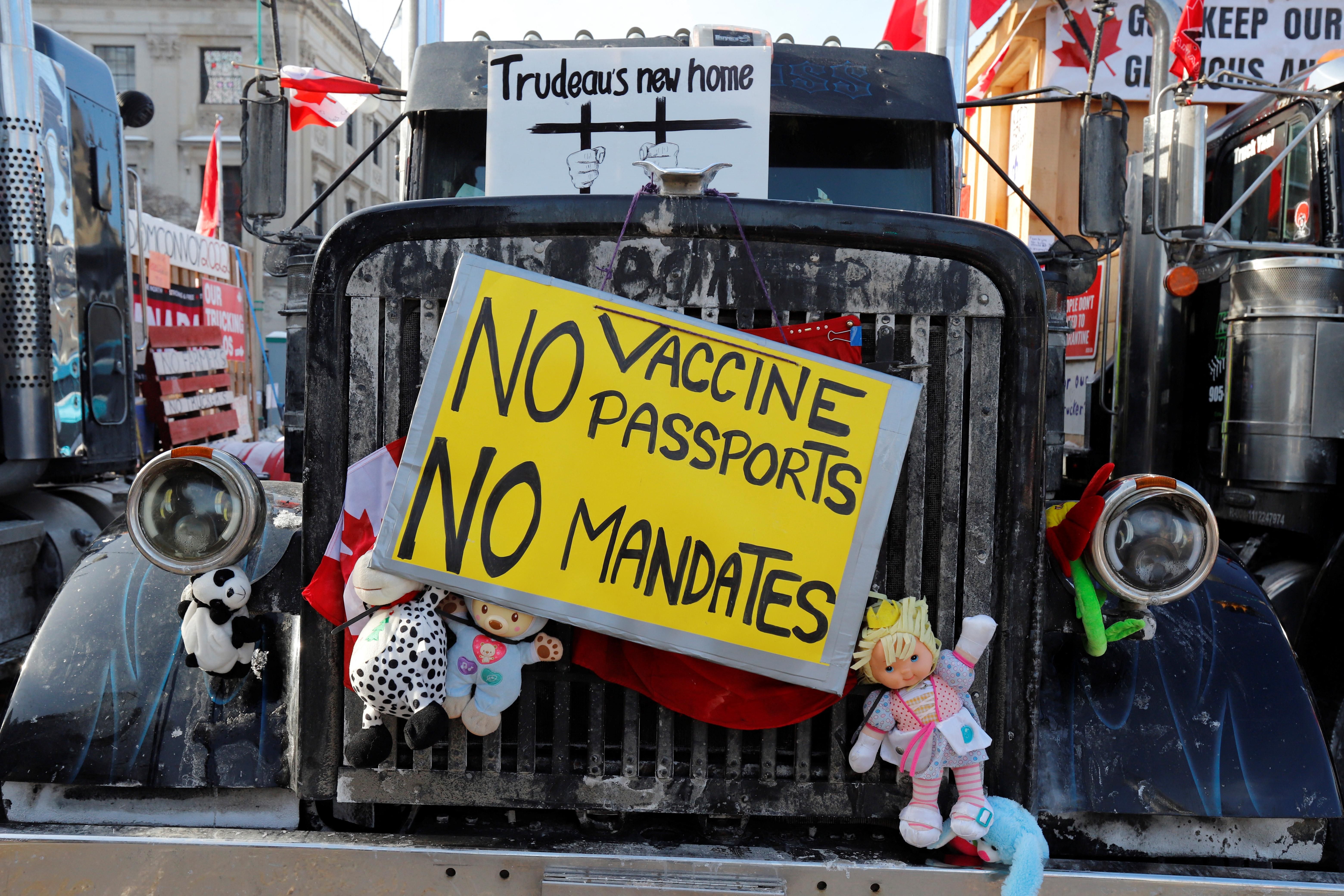Canada’s picturesque capital isn’t known for high-stakes political protests and standoffs with police. But for many days, Ottawa has been paralyzed by the Freedom Convoy, a fleet of some 500 trucks whose drivers crossed the country to protest a new federal law requiring all unvaccinated truckers to quarantine when returning from the US.
Protesters’ demands have since expanded to include, variously, an end to all COVID restrictions and the ouster of center-left Prime Minister Justin Trudeau, who refuses to meet with them. Although they’ve been “mostly peaceful,” the protests have been disruptive — a local court even issued a 10-day injunction against horn-blowing this week. The cops are overwhelmed, and the city is under a state of emergency.
Trudeau has dismissed the protesters as a “fringe minority,” though there doesn’t seem to be a clear plan for uprooting them. Meanwhile, his opponents in the Conservative Party are split over whether the truckers are promoting freedom or fomenting disorder.
Given that protests like this are almost always viewed through a partisan lens, here are a few questions to try and give them a fair shake, whatever your political leanings.
How popular is the Freedom Convoy? Polls show that about 30% of Canadians support the convoy, and 44% share the truckers’ frustration with pandemic restrictions. The Canadian Truckers Alliance says the “vast majority” of the country’s truckers are already vaccinated, and it has blasted the Freedom Convoy’s choice to occupy public roads and highways.
Is it having an effect? At the federal level, no. But provincial governments in Saskatchewan and Alberta — where many of the truckers live — have recently scrapped all local vaccine mandates and restrictions. Supporters of the truckers credit their #honkhonk convoy for tipping the needle out West, though plummeting cases and infection rates are also part of the story.
Do the truckers … have a point? The grand pandemic debate about individual freedom versus collective responsibility won’t be resolved on the streets of Ottawa. The idea of vaccine mandates was to incentivize the broadest possible protection for society, so that business and society could resume as normal.
But Canada has already vaccinated more than 80% of the population. And while the jabs are clearly effective at preventing severe illness, they aren’t containing the virus. So the benefit of being vaccinated is now mostly individual rather than collective.
Ought we continue to force vaccination on a small number of hardcore holdouts in a largely vaccinated country — particularly if the collective case for vaccination is now weakened?
Are they going too far? Civil disobedience relies on being disruptive enough to catalyze political action for a just cause without becoming such a nuisance that people broadly turn against the movement. This is the challenge that essential workers face all over the world when they protest about issues important to them — whether it’s farmers in India, construction workers in Australian, or truckers in Brazil.
Messing with the economy of downtown Ottawa is one thing, but on Monday some of the truckers took the extraordinary step of blocking the single busiest international border crossing in North America, the nearby Ambassador bridge linking Windsor, Ontario, to Detroit, Michigan.
At a moment when Canada, like just about everyone else, is struggling with soaring inflation, blocking a crossing that accounts for a quarter of Canada’s trade with the US — its largest commercial partner — was a risky move. The Trucking Alliance has already been sounding the alarm about shortages of cross-border drivers and deliveries. The Freedom Convoy’s actions could make that worse. If so, it certainly won’t help their cause, will it?
What do you think? Is the Freedom Convoy a justified reaction to outdated policies, or an unacceptable threat to public order? Let us know here.